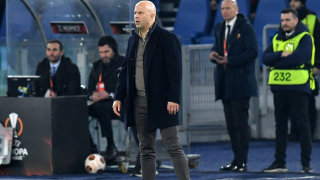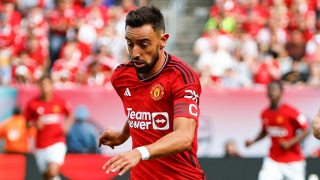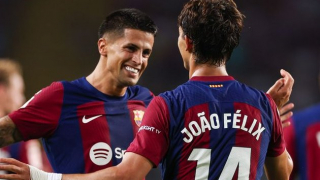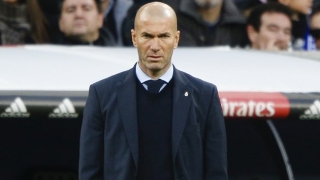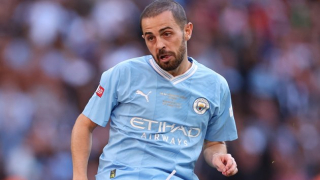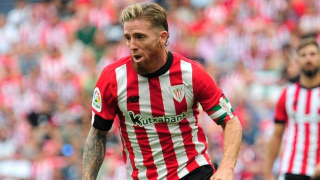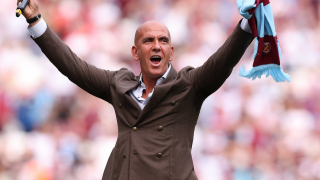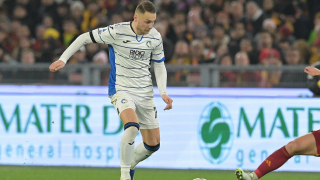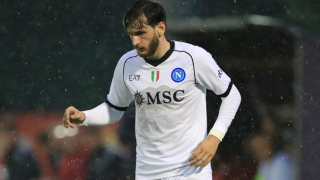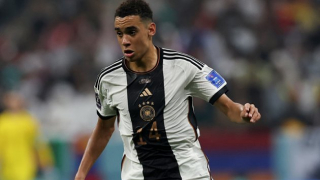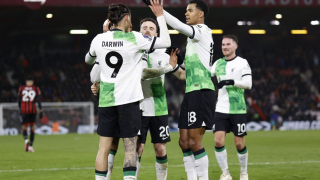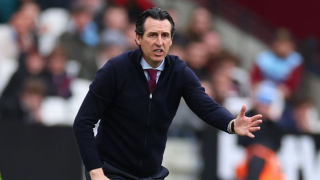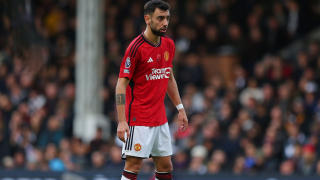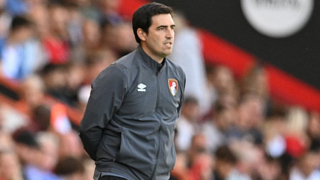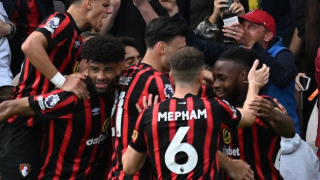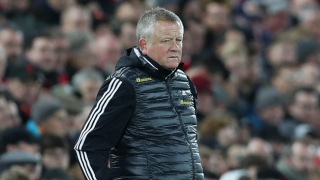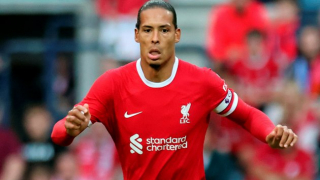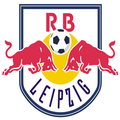In the 1987 film 'Wall Street,' anti-hero Gordon Gekko is famously quoted to have said, "greed is good" in a time where technology was beginning to take off. In the sequel, some twenty years later, the character played by Michael Douglas went on to add "now it seems it's legal" days after serving his lengthy prison sentence.
For many football purists, the sport is becoming saturated with commercialism. Fans are being priced out, clubs are distancing themselves away from tradition and wealth is seemingly the only thing that matters.
One club above all has taken the sourness modern football brings to heart and thrived on a business plan looked upon with overwhelming disgust.
Indeed, this is the incredibly unpopular RasenBallsport Leipzig, who have soared into the upper echelons of German football in a matter of years since its inception.
The road to now
Of course, they did not rise from nothing: in 2009, Red Bull acquired the rights to Oberliga Süd (fifth division) side SSV Markranstädt, completely reforming the club in changing the name, kit and crest, among other things.
Furthermore, the DFB (Deutsche Fußball-Bund – German Football Association) prohibited the use of sponsors and whatnot in the official name, so the term 'RasenBallsport' (Lawn Ball Sports) was incorporated to circumvent rules, while still preserving the essence of the company identity.
Promised plenty of funding, it came as no real shock Leipzig rocketed up the pyramid of German football – achieving four promotions in seven years.
More alarmingly, the Saxonian side also managed to sidestep the treasured "50+1" rule – in which clubs must own the majority of its own voting rights.
For example, FC Bayern München boast 290,000 official members; their significantly younger counterpart possess just 17 – and even then the majority are directly linked to Red Bull. This means the rule technically remains intact, but is tarnished beyond reason.
Consequently, countless protests came thick and fast, with the most infamous coming in the form of Dynamo Dresden ultras symbolically throwing a severed bull's head onto the pitch, and Borussia Dortmund's Südtribüne displaying myriad anti-RB banners.
Both clubs were strongly punished, as the DFB took a no-nonsense approach to such demonstrative measures.
The season of 2016/17 was Leipzig's first-ever in the top flight and the team shocked many with a resounding runners-up finish, recording the third-best campaign for a promoted club.
However, while 1. FC Kaiserslautern's triumph of winning the league nearly twenty years beforehand remains a remarkable chronicle in the illustrious history of German football, die Roten Bullens' rise to prominence is not celebrated so much.
For all their superior resources fuelled by the Austrian energy drink manufacturer, Leipzig have put a great deal of thought into their business strategy, with ambitions of becoming a powerhouse on the continental scene now within reach.
Unlike Real Madrid, Paris Saint-Germain and Manchester City, Leipzig are not fixated on buying solely the best in the market, but rather opt for developing young talent.
A significant amount of faith was placed on these young shoulders, which was a massive test for inexperienced heads, but a calculated risk at that.
After all, Leipzig ventured into unchartered territory without a great deal of pressure to instantly perform, and, so, could afford to hand invaluable game time to their prospects.
The school of thought was like that utilised by Hoffenheim – another loathed club in Germany – many years ago, who initially focused on developing youth facilities and the academy to build their foundations for success.
Leipzig, on the other hand, have gone a step further and pumped a fortune into such investments with dreams of forging an empire in a new sport.
Regardless of outlook, Leipzig is putting East German football back on the map. The reunification of the country in 1990 saw many promising players flock to the west, which subsequently had the side-effect of ruining the other side, as well as the lack of funding.
The last team to have featured in the Bundesliga from the former GDR (German Democratic Republic – a Soviet state) was FC Energie Cottbus, who were relegated in 2009 and now sit in the Regionalliga Nordost (part of the fourth tier).
Now, trade goes both ways as Leipzig have become an extremely attractive destination for players learning to ply their trade consistently at such a high level.
So great has the allure been, Oliver Burke made the obscure move from Nottingham Forest and, while the transfer did not quite work out, it was an indicator as to where the team was heading. In fact, a year before, Davie Selke took a step down from Werder Bremen to the 2. Bundesliga, but, like the Scotsman, struggled to make an impact.
The men behind it all
Leipzig almost certainly would not have been what it is today if it were not for the dedication from Ralf Rangnick.
Having previously managed Hannover, Schalke and Hoffenheim, among others, Rangnick announced himself as an astute tactician and guided the fledgling side to the top tier, before becoming sporting director soon after promotion.
However, it was not just the 59-year-old's time in Saxony that was of great importance. Rangnick has fully immersed himself in the Red Bull doctrine, having oversaw affairs from above while at Red Bull Salzburg – who themselves found popularity harder to come by than silverware.
Leipzig's ascendancy essentially condemned Salzburg to feeder club status and Austria's most despised team became a "laughing stock," as fans put so discreetly in an open letter to Red Bull.
But raiding their southern cousins has proven to be a sly move, if not also furthering the immoral label.
Salzburg have seen thirteen players cross over since 2013, and while not all have been successes, Leipzig have recently struck gold with some (in their own goldmine). While Péter Gulácsi, Bernardo and Konrad Laimer have proven to be fine investments, the acquisitions of Dayotchanculle Upamecano and Naby Keïta are the first in a lineage of special talents.
Upamecano was brought in January of yesteryear to shore up the push for a top-four finish and went on to succeed Marvin Compper at the back. The Frenchman has exceeded expectations this season, putting in several mature, outstanding performances at the age of just nineteen and will look to be a mainstay in the defence for many years to come.
The biggest success to cross the border, of course, has been Keïta.
The Guinean international was undoubtedly one of the finest midfielders in the Bundesliga last season, entertaining millions with his unparalleled dribbling, pace, directness and sheer boldness in the middle of the pitch.
Unsurprisingly, the midfielder generated a significant amount of interest from Europe's top clubs and was eventually snapped up by Jürgen Klopp's Liverpool. While Keïta will leave a massive void, the gross profit pocketed makes the transfer an acceptable loss.
Leipzig making the headlines would not have been possible without the genius of Ralph Hasenhüttl.
The 50-year-old has an admirable record in punching well above his weight with stints at Unterhaching and VfR Aalen setting the tone for a breakthrough with FC Ingolstadt.
In his three seasons with die Schanzer, Hasenhüttl lifted a club rock bottom of the second tier to a mid-table finish in their first-ever Bundesliga season, before leaving Bavaria.
Indeed, Hasenhüttl took his short experience in Germany's premier division to heart.
Continuing the legacy of Rangnick's pressing philosophy – which has also influenced others in the country – the Austrian maintained the aggressive, intense 4-2-2-2 formation.
The intrepid approach paid dividends and took many by surprise as the newcomers rocketed up the league, sitting at the summit until the fourteenth matchday when Bayern reaffirmed their stranglehold.
This, of course, was heavily influenced by the resurrection of Timo Werner.
Once heralded as the next big thing in German football after winning the Fritz-Walter U17 gold medal in 2013 – with Julian Brandt picking up silver – the striker stagnated in a Stuttgart side encountering relegation trouble.
With his hometown club, Werner was often played out of position on the wing and lacked confidence in front of goal, but when the VfB Stuttgart time bomb eventually went off, Leipzig came swooping in to add the eager youngster to their growing, enthusiastic project.
It turned out to be a shrewd deal as Werner thrived in Hasenhüttl's attacking philosophy, registering 21 league goals – more than the three seasons with Stuttgart combined.
Despite Hasenhüttl possessing an uncanny trait for overachieving, the second-place finish was beyond the hierarchy's dreams, even those of the excessively ambitious Red Bull owner, Dietrich Mateschitz.
Of course, critics will be quick to point out the achievement was boosted by Borussia Dortmund losing key players, as well as the struggles of Bayer Leverkusen, Borussia Mönchengladbach and Schalke, but it remained a big deal nonetheless.
After a maiden season to cherish, Leipzig have somewhat hit a reef in the spotlight.
They find themselves in the middle of a vicious fight to stay at the front of the chasing pack behind a rampant, reenergised Bayern. Moreover, defeats to Hoffenheim, Hertha BSC and even rock bottom FC Köln have been detrimental to form in the table.
Despite such avoidable losses, there was still unwavering confidence in the prospects' abilities. The starting eleven in the November match against Hannover 96 had an average age of just 22.4, with the outfield average being just 21.9, and yet the team still had the spirit to come from a goal down to claim all three points.
Ironically, Leipzig endured a sugar crash to some extent after an adrenalin-fuelled year.
But second season blues were only to be expected with the added influx of games and rivals getting their act together – the taste of Champions League football was short-lived yet a memorable experience.
Nevertheless, the energetic, unique counter-pressing which took the Bundesliga by storm soon became lethargic and unsustainable, meaning Hasenhüttl had to rethink his strategy to steady the ship. Flexible in his strategy, the Austrian manager subsequently eased off the tenacious intensity and resorted to a flat, traditional 4-4-2, though pressing and rapid counter-attacks remained a fundamental course of action.
The future
Leipzig have exceeded expectations with their take-off from the second tier and not taken the pedal off recruiting young players brimming with potential.
Just last summer, money was splashed out on Jean-Kévin Augustin and Bruma, while Ademola Lookman was brought in on loan from Everton – a club rife with competition lured a talented winger from one struggling for quality.
Boasting the luxury of big-money backers, Leipzig have proven they possess the means to compete with the wealth of the Premier League, albeit to an extent.
There is a self-imposed wage cap placed at the club which keeps players focused on developing, and while this is a smart initiative, it will have to be scrapped sooner or later.
Rangnick even said back in 2016 the policy "is not valid for the next five years," and it will be developed accordingly, in an interview with Frankfurter Allgemeine Zeitung.
Nonetheless, the supposed salary cap has reportedly been raised and it seems only a matter of time until it is abolished once and for all if dreams of becoming a superpower are to be fulfilled.
Undoubtedly, a major reason for Naby Keïta signing with Liverpool was down to the vastly superior wage offered – as well as fame – so the powers that be will certainly have to ditch the shackles if they are to retain the services of Timo Werner and whoever for the foreseeable future.
But it is what it is. That is the nature of modern football and, for all their crafty planning, Leipzig must have known they would be on the receiving end of being outmuscled financially.
Yet for all the renowned success of recent signings, it is easy to forget the contributions made by those who were crucial to promotion and act as a backbone for the squad.
Yussuf Poulsen arrived from Danish side Lyngby BK when Leipzig had just arrived in the 3. Liga, and has become a mainstay ever since – featuring in over 150 competitive matches – albeit not receiving nearly as much praise as his striker partner, Werner.
Diego Demme was also an instrumental figure in the double promotion, arriving over four years ago, but, like Poulsen, has been dwarfed by the man next to him in the form of Keïta.
Arguably the most under-appreciated remains Willi Orban, who has continued to thrive in the defence and adapted exceedingly well to life in the Bundesliga.
The German centre-back is the best suited for the captaincy, with Poulsen even describing him as the most mentally strong in the ranks.
Each of these players – and more – give the youthful side a healthy injection of experience.
Emil Forsberg has epitomised the vital continuity surrounding not only the hierarchy with Rangnick moving upstairs, but that rooted in the team.
The Swede amassed a season-best of nineteen league assists last season, forging a formidable partnership with Werner up front, which only showcased how well experience and vitality could mix.
These times mark a valuable learning curve of sorts for Leipzig. The rookies will be shown no quarter when it comes to the prying eyes of Europe's sharks, and yet sailing has been relatively straightforward so far.
Rangnick has shown the club will not be held to ransom nor are they the victims of their own success, but one looking directly to the future with a clear game plan.
With a remarkable amount of talent stockpiled from top to bottom and an abundantly proficient management team, Leizpig may well have what it takes to topple dynasties across the continent.
Leipzig hated: https://fussballkevinblog.wordpress.com/2017/09/15/how-the-dfb-soured-relations-with-the-fans/

